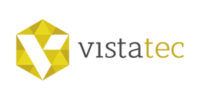X Cultural Ep 3 - Jeanne Riot
X Cultural host Michael J. Asquith, discusses the incredibly fast-moving sustainable culture that is changing and influencing worldwide business and the international brands of today. On this episode of X Cultural Michael is joined by Jeanne Riot, Global Supplier Inclusion & Sustainability at Accenture. Michael notes that Jeanne is “uniquely gifted and ridiculously well-versed in these subjects, particularly as it relates to the procurement and outsourcing space…”
Michael asks Jeanne to give the audience what he calls the “pop song version” of where she is in regards to her professional career. Jeanne replies she will take him seriously and say there is a jump beginning with The House of Pain, meaning she started in France after obtaining her PhD in Sustainability but didn’t find what she wanted there, so she came to the UK.
Although she intended to stay in the UK for only a year, she is still in London six years later. Jeanne began working as an emissions analyst and then as an energy manager for big industrial portfolios Accenture acquired. She became a project manager at Accenture, then moved to outsource operations, then a year ago, she landed her “dream job” with Accenture as supplier inclusion and sustainability lead.
Diving right into the sustainability culture, Michael notes that he likes to consider himself a “casual conservationist” regarding the environment. Michael’s first question to Jeanne is to differentiate between the trendy sustainability culture vs. the hypocritical sustainability culture vs. the hardcore sustainability culture.
Jeanne first notes that there is a sustainability culture out there that is very different from the 1970s. She mentions how veganism is one of the ways you can reduce your environmental footprint and reduce your meat consumption.
There are many sustainability trends today, like trying to be zero waste, zero plastic, cooking more meals at home, or simply reducing the amount of waste produced. A certain culture is known as “slow sustainability” may be more approachable for more people.
Michael notes that he is still learning about sustainability and that he’s fortunate enough to work with some of the most iconic, innovative brands through Vistatec. Still, he’s realized through his consumerism that the products he purchases can be sourced in more responsible ways. He specifically mentions a shoe company out of Brooklyn called “Greats” that promotes sustainability.
Jeanne notes there are different relevant approaches to sustainability, depending on the industry, and there is no one-size-fits-all. Jeanne also mentions that many industries are trying to cut down on travel and that the Covid pandemic had furthered that goal. Jeanne says that businesses would just kind of “push it underneath the rug” because they didn’t want to disclose they were doing something “bad” for the environment in the past. Today, they are finding it more productive to say, yes, our activities impact the environment, but what and how can we change that—More disclosure, more transparency.
Accenture guides companies in many different sustainability areas within the parameters of the global changes and global challenges we are fighting and facing. Determining the best course of action for any company hinges on their “business value chain,” in that you look at where you source your products and how it positively or negatively impacts those communities. It’s important to trace all the way from the manufacturing process to the packaging and finally, to the consumption. All of this connects back to the sustainable development goals of each company.
Michael mentions Vistatec has a mental health day where they take employees through different masterclasses to specifically learn how to approach some of the pressures associated with working from home. Jeanne agrees that it is all intertwined and interconnected. Michael asks what positive or negative changes Jeanne has seen from the pandemic. Jeanne replies that it ties into what Michael just said about mental health because she has seen more mindfulness among companies.
Michael asks Jeanne for a story that provides context for what Jeanne and her team go through when consulting global organizations on social responsibility. Jeanne relays one story where she and her team were part of an internal Accenture team working on making their system and supply chain more sustainable. In the past year, there has been such a demand from clients regarding sustainability questions and sustainability in the supply chain, so they’ve become more focused on the supply chain. They advise companies to take baby steps toward sustainability, as it is always continuous and evolving.
There is a statistic that puts things into perspective from an essential sustainability strategy; something called the green behind the cloud. Migrations to the public cloud can reduce Co2 emissions by 59 million tons per year. This equates to taking 22 million cars off the road. What staggering numbers!
Jeanne notes that sustainability reports need to be done differently because they are not resonating well enough with different stakeholders within an organization or apply the data or what they’re learning from the data. There are lots of international standards that companies can refer to, like the global reporting initiative.
Many clients want to know how they are doing in relation to their peers regarding their sustainability efforts. In the end, companies need to know that actions have consequences on the planet, whether it’s consequences of biodiversity, human health, or climate change. Reduce, reuse, recycle, and refuse—as in refuse to buy another pair of shoes you don’t need!

